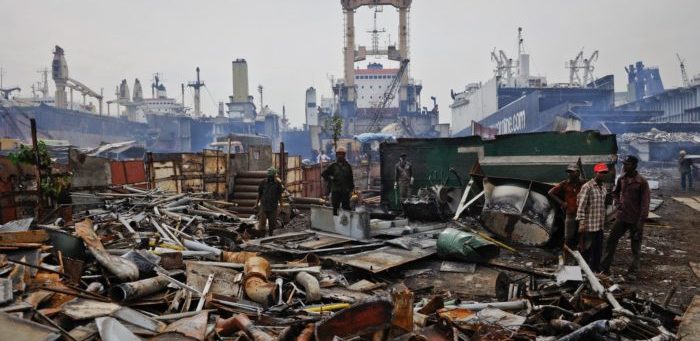The Dutch Public Prosecutor is bringing criminal charges against Groningen-based Seatrade, for having sold vessels to scrap yards in countries “where current ship dismantling methods endanger the lives and health of workers and pollute the environment”. This is the first time Public Prosecutors are bringing criminal charges against a shipowner.
The Dutch Public Prosecutor calls for EUR 2.35 million and confiscation of the profits Seatrade made on the illegal sale of four ships, as well as a six month prison sentence for three of Seatrade’s top executives, according to data provided by NGO Shipbreaking Platform. Seatrade is the largest reefer operator in the world.
The company is facing fines over the sale for scrapping of four vessels in total, one to Indian, one to Bangladeshi, and two to Turkish breaking yards. The heavy charges are based on international laws governing the export of hazardous waste and the EU Waste Shipment Regulation. The Regulation prohibits EU Member States from exporting hazardous waste to countries outside the OECD, as well as requiring a prior informed consent for such exports. All four vessels departed on their last voyage to the breaking yards from the ports of Rotterdam and Hamburg in the spring of 2012.
The Prosecutor presented evidence that Seatrade was planning on selling the ships via a cash-buyer in order to maximize financial gain. Seatrade opted for using a cash buyer, rather than recycling the ships in a safe and clean manner, and knowingly sold the vessels for dirty and dangerous breaking for financial reasons.
The case is being heard in a Rotterdam Court this week, and authorities in Norway, Belgium, and the UK will be paying close attention to the verdict of the case. Similar cases are currently being investigated there, involving shipping companies such as Maersk and CMB, as well as the world’s largest cash-buyers GMS and Wirana.




























































